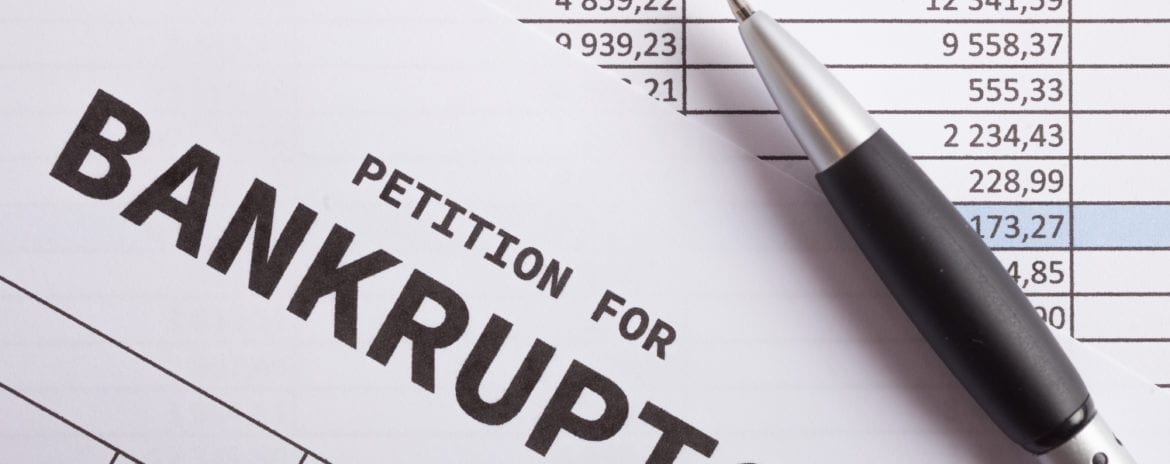There are four chapters under which a Debtor may seek bankruptcy protection:
- Chapter 7: Liquidation. This is the type of relief most consumers seek –and what most people think about as “total” bankruptcy. It is a complete discharge of all unsecured debt, including credit cards and medical expenses. Chapter 7 does not discharge all tax debts (there are specific rules for when taxes are dischargeable) or student loans, in most cases. However, a case brought under this provision can be the simplest and quickest vehicle to a fresh start. There are income limits to qualify for Chapter 7 bankruptcy. The filing fee for a Chapter 7 is $335; attorney fees are separate.
- Chapter 13: Wage Earner Plan. This form of bankruptcy allows individuals with regular income to develop a repayment plan for all or some of their outstanding debt. It is especially attractive to Debtors wanting to hang onto major assets (e.g., a house or a car) that are in danger of foreclosure or repossession. There are also attractive features allowing for the recharacterizing of under-secured debt, like cramdowns on older vehicles and stripping of second mortgages. The filing fee for a Chapter 13 is $310; attorney fees are separate.
- Chapter 11: Reorganization. This chapter is attractive mostly to corporations seeking to rehabilitate a business. However, it is also designed to assist individuals with substantial assets to reorganize their affairs. This chapter should be approached with caution since its provisions are complex and decisions thereunder best approached with the assistance of competent counsel. I do not file cases under Chapter 11.
- Chapter 12: Family Farmer or Fisherman. This section of the Code allows family farmers and fishermen to enter into a repayment plan similar to a Chapter 13 Wage Earner Plan. I do not file cases under Chapter 12.
Exemptions:
When you file for bankruptcy, you are allowed to protect a certain amount of “stuff” from liquidation under a Chapter 7 bankruptcy, or from being counted as an asset available to pay back creditors in a Chapter 13 bankruptcy. Washington allows you to choose from either the federal or state exemptions. Always speak with an attorney regarding the best choice for claiming exemptions in a bankruptcy. This is not an exhaustive list of exemptions, but a few examples of Washington State exemptions include:
Your house:
Under Washington law, homeowners may exempt up to $125,000 of their home or other property covered by the homestead exemption. If you are not living in the home, you must file a homestead declaration.
You can also protect up to $15,000 of unimproved property, but you must first file a homestead declaration.
Motor Vehicles:
A debtor may exempt up to $3,250 in one motor vehicle that is used for personal transportation or to maintain employment. A married couple may exempt two motor vehicles not to exceed $6,500. Wash. Rev. Code Ann. § 6.15.010(1)(c)(iii).
Personal Property:
You may exempt the following personal property:
- clothing, but no more than $3,500 for furs and jewelry
- books and electronic media to $3,500
- household goods, appliances, and furniture (not to exceed $6,500 per individual or $13,000 per married couple, with no single item to exceed $750)
- child support
- health aids
- health savings account and medical savings account deposits (6.15.020)
- keepsakes and family pictures
- tuition units purchased more than 2 years before filing
- spendthrift trusts (6.32.250; In re Findley, 286 b.r. 163 (2002))
- personal injury recovery and/or proceeds, not to exceed $20,000 per individual (doesn’t protect pain and suffering or past lost wages), and
- loss of future earning recoveries (to the extent reasonably necessary for support).
Wash. Rev. Code Ann. § 6.15.010.
Wages:
A debtor may exempt the following amount of his or her wages (except to enforce court awarded support orders):
- 75% of his or her disposable earnings; or
- 30 times the federal minimum hourly wage per week (whichever is greater).
Wash. Rev. Code Ann. § 6.27.150.
Pension and Retirement Accounts
A debtor may exempt pension benefits for federal employees, teachers, city employees, law enforcement officials, firefighters, state patrol officers, and volunteer firefighters. Wash. Rev. Code Ann. § § 6.15.020, 41.26.053, 41.28.200. 41.32.052, 41.24.240, 41.44.240, 43.43.310.
Tax-exempt retirement accounts (such as 401ks and IRAS) are exempt as per the federal rules.

